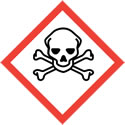Category: Training
Training is the number one element in accident, incident, and illness avoidance. Check the articles here frequently for the latest and best tips on techniques, trends, programs and equipment. We offer explanations for group, one-one, or self-directed situations, in both general and specific work activities. Your training will be both easier and more effective if you do.
Beyond Training: Make Supervisors and Employees Practice What You Preach
A contractor presents evidence that it had provided training to a supervisor who violated safety regulations. Will this be enough to get the contractor off the hook with OSHA? The construction company in question builds and installs water supply and sewer pipes. On July 10, 2009, while the company was performing trenching work to install […]
Mosquito Madness
Ahhh, August. Long summer nights around the backyard barbecue, on the beach, or at the campfire. Scenes of idyllic bliss … until the sound of incessant buzzing is heard. Darn those pesky mosquitoes! Ensuring mosquito-free work and recreation is more than just a quest for unhindered relaxation. Mosquitoes can carry several harmful diseases, which include […]
Train Workers to Stay Safe Around Ammonia
Ammonia is a common chemical that many people probably keep underneath the kitchen sink at home. But don’t let workers be fooled into thinking ammonia is completely safe because they can buy it at a grocery store—on the contrary, ammonia is extremely dangerous. Why train workers who work around ammonia? Ammonia is an extremely hazardous […]
Blended Learning Options: Computer-Based Training (CBT)
This month we continue assessing your various training options to help you put together the right mix of blended learning to ensure your workers are the best trained they can be. In this issue, we’ll focus on computer-based training, which offers several options for teaching employees. Computer-based training is becoming increasingly prevalent as technology becomes […]
Blood Is Thicker than Water
But all bodily fluids have the potential to be infected with bloodborne pathogens, such as hepatitis and the human immunodeficiency virus (HIV). Since July 28 is World Hepatitis Day, this is a good time for bloodborne pathogens (BBP) training. If you have workers who are exposed to blood or other bodily fluids either regularly or […]





